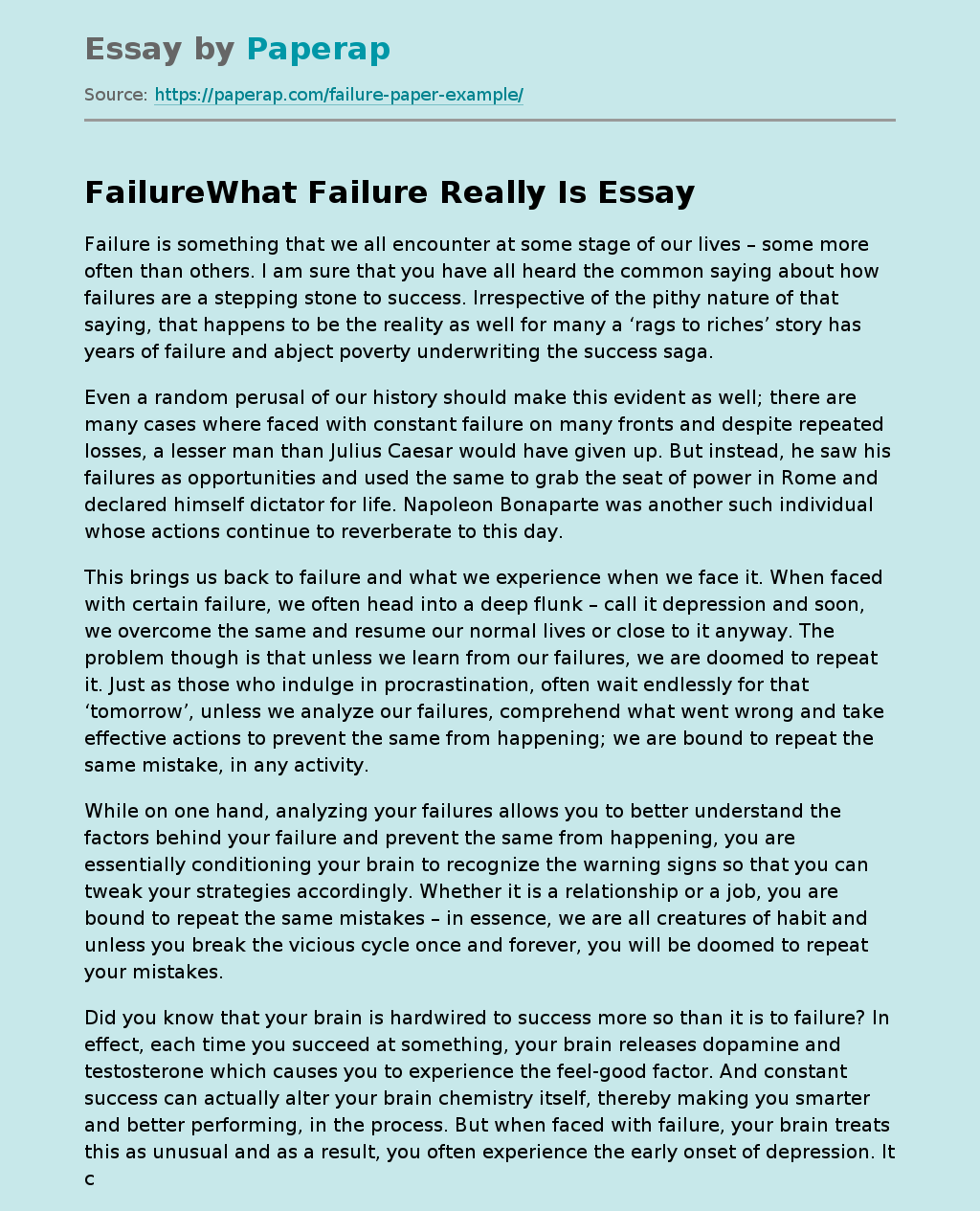FailureWhat Failure Really Is
Failure is something that we all encounter at some stage of our lives – some more often than others. I am sure that you have all heard the common saying about how failures are a stepping stone to success. Irrespective of the pithy nature of that saying, that happens to be the reality as well for many a ‘rags to riches’ story has years of failure and abject poverty underwriting the success saga.
Even a random perusal of our history should make this evident as well; there are many cases where faced with constant failure on many fronts and despite repeated losses, a lesser man than Julius Caesar would have given up.
But instead, he saw his failures as opportunities and used the same to grab the seat of power in Rome and declared himself dictator for life. Napoleon Bonaparte was another such individual whose actions continue to reverberate to this day.
This brings us back to failure and what we experience when we face it.
When faced with certain failure, we often head into a deep flunk – call it depression and soon, we overcome the same and resume our normal lives or close to it anyway. The problem though is that unless we learn from our failures, we are doomed to repeat it. Just as those who indulge in procrastination, often wait endlessly for that ‘tomorrow’, unless we analyze our failures, comprehend what went wrong and take effective actions to prevent the same from happening; we are bound to repeat the same mistake, in any activity.
While on one hand, analyzing your failures allows you to better understand the factors behind your failure and prevent the same from happening, you are essentially conditioning your brain to recognize the warning signs so that you can tweak your strategies accordingly. Whether it is a relationship or a job, you are bound to repeat the same mistakes – in essence, we are all creatures of habit and unless you break the vicious cycle once and forever, you will be doomed to repeat your mistakes.
Did you know that your brain is hardwired to success more so than it is to failure? In effect, each time you succeed at something, your brain releases dopamine and testosterone which causes you to experience the feel-good factor. And constant success can actually alter your brain chemistry itself, thereby making you smarter and better performing, in the process. But when faced with failure, your brain treats this as unusual and as a result, you often experience the early onset of depression. It can cause you a while to bring you out of your depression but unless you really understand the real reasons behind your failure, you are bound to repeat the same.
You could argue that it is our failure that keeps us rooted and makes us more human in the process and to a certain extent, that’s true. When faced with a real failure, we often evaluate all our relationships and introspect deeply – it Is this act that enables us to get in touch with our humanity and enables us to seek solace in the form of personal relationships.
All of us have failed at something at sometime in our lifetimes. Failures can be to do with minor issues which have few if any consequences or failures can apply to major issues and have widespread affects. Failure is, ‘a lack of success in doing something.’
“Success is not final, failure is not fatal: it is the courage to continue that counts.” – Winston Churchill.
These words are wise. The child who fails to correctly tie his or her shoe laces tries again and again. Lessons are learned from the failed attempts and the child perseveres until the bow is tied and failure is forgotten. The goal was worth the lessons in failure. This pattern continues for the rest of our lives. To achieve a goal often we fail. The old saying, ‘at first if we don’t succeed, try try again,’ is very true when we want to overcome failure.
FailureWhat Failure Really Is. (2020, Mar 05). Retrieved from https://paperap.com/failure-paper-example/

